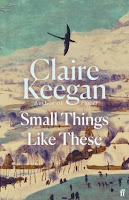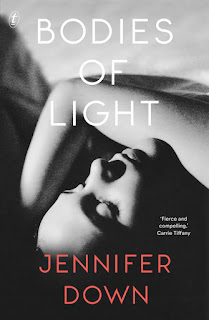This week the Longlist was announced for the 2022 Booker prize. The thirteen titles nominated are dominated by six authors from America, three British, two Irish along with an author from Zimbabwe and one from Sri Lanka.
The Booker Prize Longlist as often a mixed bag of novels, but what I love about the Longlist is that it introduces me to many authors and books I do not know. For example, from last year's Longlist I read and really enjoyed Kazuo Ishiguro's Klara and the Sun.'The skill with which writers shape and sustain those variously imagined worlds, and allow others to inhabit them, has been our main criterion in proposing this longlist of 12 books. Exceptionally well written and carefully crafted in whatever genre, they seem to us to exploit and expand what the language can do. The list that we have selected offers story, fable and parable, fantasy, mystery, meditation and thriller.'
Glory is a postcolonial fable, set in a fictional African country Jidada where an elderly tyrannical horse is disposed. A chorus of animals narrate this tale as Bulawayo tells the story of the military overthrow of Robert Mugabe, Zimbabwe's President (1987-2017). The judges called this novel: 'An ingenious and brilliant political fable that bears witness to the surreal turns of history'. Bulawayo was shortlisted for the Booker Prize in 2013 for her debut novel We Need New Names.
A woman is convinced that a psychotherapist has driven her older sister to commit suicide. Determined to confirm her suspicions, she poses as a client and documents her sessions. As the sessions continue, the women begins to question her own identity. Graeme Macrae Burnet is an inventive writer who plays with form and style. Set in the 1960s, London counter-culture is the backdrop to an innovative novel about radical psychiatry. I absolutely loved Burnet's novel His Bloody Project, shortlisted for the 2016 Booker Prize. I have just started reading Case Study and I am really enjoying it. (Update: read review)
A complex, multi-layer novel exploring a fictional couple, Benjamin and Helen Rask, a wealthy Wall Street tycoon and his glamorous wife. The judges said of this novel: 'There is a dazzling intelligence behind this novel, which challenges us to rethink everything we know about the institutions on which nations are built and the narratives by which stories are told. Sly, sophisticated, insistently questioning, Diaz writes with assurance, determined to rob us of every certainty'.
In the town of Money, Mississippi, a series of brutal murders are investigated by a pair of detectives. They face resistance from the local sheriff, the coroner, and the local community. Each crime scene resembled that of Emmett Till, a young black boy lynched decades earlier. Are these killings retribution? The judges said of this novel: 'Eerie, provocative, blackly comic Southern noir. A page-turner with a sharp, provocative edge, as it harks back to the real-life murder of young Emmett Till, it has important things to say about race'. (Update: read review)
In 1865 John Wilkes Booth assassinated President Abraham Lincoln. In this historical novel, Fowler explores the Booth family, taking the spotlight off the assassin and focussing on those around him. The judges said of Booth: 'With an eagle eye and a bone-dry wit, Fowler introduces the Booths, a 19th century family forged by theatrical ambition and agonising grief within a household steeped in racism and much-making of the disunited States'. Fowler was previously shortlisted for the booker in 2014 for We Are All Completely Beside Ourselves.
A young boy enjoys reading comics and collecting marbles. Treacle Walker is a rag-and-bone man who claims he is a healer. The boy trades some items for something he hopes has magical properties. The judges said of this novel: 'This tiny book compresses all his themes - time, childhood, language, science and landscape entangled - into a single, calmly plaintive cry'. At 88, Alan Garner is the oldest author to be long listed for the Booker.
Set in 1989, in Colombo, Maali Almeida is a war photographer, gambler and closet queen. He wakes in the afterlife to find that he has been killed but has no idea by whom. He has seven moons to contact his loved ones and alert them to some important photographs. The judges said of this novel: 'Life after death in Sri Lanka: an afterlife noir, with nods to Dante and Buddha and yet unpretentious. Fizzes with energy, imagery and ideas against a broad, surreal vision of the Sri Lankan civil wars. Slyly, angrily comic'.
In a small Irish town, Christmas 1985, Bill Furlong is busy as a coal and timber merchant. When making a delivery at a convent, he discovers there is something wrong there. The convent is one of the Catholic Church's Magdalen Laundries. As a father of five daughters and born of an unwed mother himself, Bill cannot reconcile the conditions for the women in the convent with his definition of charity. The judges said of this novel: 'A story of quiet bravery, set in an Irish community in denial of its central secret. Beautiful, clear, economic writing and an elegant structure dense with moral themes'. (Update: read review)
The judges said of this novel: 'The summer of 1979. Sectarian murders claim victims across Ireland. An idyllic island fishing community off the west coast becomes the labroratory in which Magee dissects the gulf between what Ireland is and how the rest of the world wants to fantasise it.' This small island is host to an English painter and a Frenchman, outsiders who, in their own ways, view themselves as saviours of this community. Through this narrative, Magee explores colonialism, cultural identity and violence.
This debut novel explores the life of a woman, Lia. When she is diagnosed with a life-threatening illness, Lia, her husband Harry and their daughter Iris, are each derailed. Lia reflects on her past and the people who shaped it. As her illness progresses another voice begins to tell her story: the cancer that is slowly killing her. The judges said of this novel: 'Deliriously inventive and viscerally moving, Mortimer's debut is a patterned, protean narrative that astonishes and overwhelms'.
In 2015, scandal erupted when a group of Oakland police officers sexually exploited a vulnerable teenage girl. This scandal inspired Mottley's debut novel. Kiara struggles to make ends meet when she turns to prostitution in desperation. Picked up by the police, they take advantage of her. The judges said of this novel: 'Nightcrawling is a dazzling and electrifying novel set in the streets of Oakland, where the protagonist Kiara will face a justice system that oppresses young black women. A spellbinding story and a Catcher in the Rye for a new generation.' At only 20 years old, Leila Mottley is the youngest Booker longlister.
This is the debut novel by Selby Wynn Schwartz, a writing teacher at Stanford University. The historical novel explores the lives of women, many of them well known feminists, who took control over their own lives at the turn of the twentieth century. Sarah Bernhardt, Isadora Duncan, Lina Poletti, Gertrude Stein, and Virginia Woold are among the voices in this tale. The judges said of this novel: 'A poetic patchwork of fragments of literary history that together take shape as an intergenerational tale of the Lesbian family. An ancestry eruditely, playfully recovered.'
Strout is well known for her Olive Kitteridge and Lucy Barton novels. Oh William! is the third novel in her Barton series. Lucy is invited by her ex-husband William on a quest to investigate a family secret. As they travel together the learn more about each other and themselves. The judges said of this novel: 'This is meticulous observed writing, full of probing psychological insight. Lucy Barton is one of literature's immortal characters - brittle, damaged, unravelling, vulnerable and most of all, ordinary, like us all.'
















